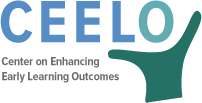This presentation highlights research on quality early care and education in the US – including the National Head Start Impact Study and several state pre-K studies. The final slides lists a number of resources with hyperlinks.
High quality early learning programs promote the developmental and academic success of young children birth through third grade. Research points to key factors that influence child outcomes, including the professional expertise of the adults, the rigor of curriculum based standards, the involvement of families, and the attention to the social-emotional and physical health needs of children. A preponderance of evidence has emerged on the effects of well-implemented early learning programs to inform state and local decision-makers.
Access to Quality Preschool in the US
This webinar shares highlights from the national data, including trends over the past 10 years; takes a closer look at states with high minority populations, noting those that are making progress and states that are falling behind in efforts to increase access to high quality preschool for vulnerable children; and, discusses policy recommendations for State Education Agency and early childhood leaders to ensure that all children have access to high quality preschool. The webinar was sponsored by CEELO, with Dr. Steven Barnett (CEELO/NIEER), Dr. Milagros Nores (NIEER), and David Johns, (White House Initiative on Educational Excellence for African Americans).
Supporting SEA Early Learning Initiatives – How We Can Help You!
This presentation gives an overview of CEELO and resources it hosts on the CEELO website. It also includes information from the NIEER State of Preschool Yearbook on the Mid Atlantic Comprehensive Center region. Jana Martella and Megan Carolan gave this presentation at the Mid-Atlantic Comprehensive Center Early Learning Round Table.
The National Landscape of State Prekindergarten Programs: State Roadmaps of Inclusion
This presentation highlights critical indicators for improving access to pre-K for children with disabilities and details what the 2012 NIEER Yearbook data tell us, and how children faring after ten years of data collection. Jana Martella gave this presentation at the 2013 IDEA Leadership Conference.
Teacher Evaluation | P-3
This presentation explores emerging trends in measuring child growth for teacher evaluation, differing state roles in teacher evaluation systems, and key policies in states. Jana Martella presented these slides at the National Governors Association Cross-State Policy Academy.
Using Assessments to Improve Teaching and Learning for Young Children Birth Through Third Grade
This page offers helpful resources on assessment from the 2013 CEELO Roundtable. (see “Presentations” and “Resources” tabs).
Instructional Practices that Support Literacy Achievement of Students Living in Poverty
This presentation reviews research on the impact of poverty and identifies a dearth of literacy resources on the reading achievement of children in low-income households. The presentation highlights intentional instructional practices that focus on vocabulary development, integration of literacy instruction with science and math, and greater access to print and literacy-rich resources can help children as ways to close the achievement gap in literacy and other content domains. CEELO supported the participation of Susan Neuman (University of Michigan) as a presenter for this session at the Wisconsin Literacy (un) Conference.
State Early Learning Standards: Lessons from Applying Implementation Research
This webinar provides an overview of New England and Islands Regional Education Laboratory (NEI-REL) and CEELO, highlights national trends and issues for consideration for implementation, shares best practices related to implementing statewide initiatives, and discusses implementing early learning and development standards in Connecticut.
Using Data to Drive Literacy Instruction K-3
This presentation provides an overview of the formative assessment cycle, demonstrates the role of standards in assessment, interprets examples of data to inform instruction, and highlights the connection between assessment and instruction. Shannon Riley-Ayers presented this material at the Wisconsin “UnConference” of Early Literacy.
Overview of State Kindergarten Readiness Definitions
This presentation explores current needs and issues and poses critical questions in definition kindergarten readiness. It concludes with resources for further information.Lori Connors-Tadros gave this presentation to the Arkansas Kindergarten readiness Indicators Committee.
Ohio 3rd Grade Reading Guarantee Early Childhood Work Group
This presentation focuses on third grade reading success, highlighting evidence of disparities and gaps between low- and high-risk students and providing evidence on why grade level reading is important. It highlights four strategies to improve third grade reading success: convince parents and early childhood teachers that there’s an urgent problem, invest in high-quality early childhood programs, reduce chronic absenteeism, and combat summer learning loss. Tom Schultz gave this presentation to the Ohio 3rd Grade Reading Guarantee Early Childhood Work Group.
